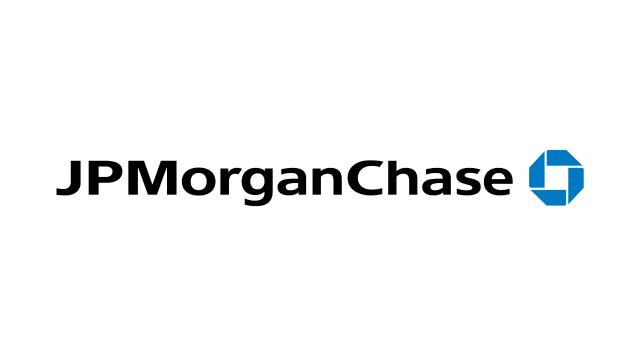Top Class Actions’s website and social media posts use affiliate links. If you make a purchase using such links, we may receive a commission, but it will not result in any additional charges to you. Please review our Affiliate Link Disclosure for more information.

Plaintiffs in the long-running case (Conner v. JPMorgan Chase Bank, et al.) alleged that Chase made automated, non-emergency calls on behalf of lender Fannie Mae to residential loan holders’ cell phones without consent, a violation of the federal Telephone Consumer Protection Act (TCPA).
U.S. District Court Judge Gonzalo P. Curiel of the Southern District of California approved the new Chase class action settlement on Feb. 5. Each Class Member is expected to receive about $70 per eligible claim, an amount that could be reduced if more than the projected number of claims are submitted.
Class Members are present and former Chase borrowers or co-borrowers who have or had their mortgage or home equity loan serviced by JPMorgan Chase or Chase Home Finance LLC between June 16, 2006 and June 15, 2011, as well as former EMC Mortgage customers whose loans were or are serviced by JPMCB or Chase Home Finance between June 16, 2006 and July 7, 2011, and who were contacted on their cellphones by the bank through the use of an automated telephone dialing system, known as a robocall.
The robocall lawsuit also named the government-sponsored Federal National Mortgage Association (known as Fannie Mae) as a defendant since the bank services Fannie Mae loans.
Settlement documents state that the defendants deny liability, but agreed to the class action settlement to avoid the expense and inconvenience of litigation.
The defendants originally agreed to a class action settlement in the case in January 2012, and Class Members had until July 10, 2012 to file a claim. But a dissenting Class Member notified the Court that he had not received notice of the class action settlement, prompting the parties to withdraw their pending motion for final approval while they investigated whether all Class Members had been identified and provided a Settlement Notice.
The investigation took more than a year and uncovered an additional 1.3 million eligible claimants, referred to as Group 2. Class Members in Group 2 were sent a supplemental notice in June 2014, and had until Sept. 25, 2014 to file a claim.
In their motion for final approval of the new deal, plaintiffs noted that more than 97 percent of Settlement Class had been notified of the Connor v. JPMorgan Chase Bank TCPA settlement through a direct mail postcard summary notice.
“The court hereby finally approves the settlement agreement and the settlement contemplated thereby, and finds that the terms constitute, in all respects, a fair, reasonable and adequate settlement as to all settlement class members … and directs consummation of the settlement pursuant to its terms and conditions,” Judge Curiel said in his final approval Order.
More information on the Chase TCPA class action settlement can be found at: www.connorTCPAsettlement.com.
The case is Connor v. JPMorgan Chase Bank,et al., Case No. 10-cv-01284, in the U.S. District Court for the Southern District of California.
Telephone Consumer Protection Act
The TCPA became law in 1991. It carries a $500 fine for each violation. Each cell phone user who proves an intentional violation can sue for $1,500 for each unlawful message.
Provisions of the law prohibit solicitations to residences before 8 a.m. or after 9 p.m. Solicitors are required to provide their name as well as the name of the company they are calling for in addition to a telephone number or address where the company can be contacted. Solicitors must also maintain a company-specific do-not-call list which is to be honored for five years.
The law also strictly prohibits making any calls using an automatic telephone dialing system or an artificial or prerecorded voice to an emergency line such as 911, a hospital emergency number, a physician’s office, a hospital or health care facility, a cell phone, or any service for which the recipient is charged for the call.
Under the TCPA, using auto-dialing equipment to send calls to wireless phones without the prior consent of the cellphone user is prohibited. Text messages are considered under the law as the equivalent of telephone calls.
In 2012, the Federal Communications Commission (FCC) revised the TCPA rules to require telemarketers to obtain prior express written consent from consumers before robocalling them. Telemarketers can no longer use an “established business relationship” to avoid getting consent from consumers when their home phones.
Under the revised law, telemarketers must provide an automated, interactive “opt-out” mechanism during each robocall so consumers can immediately tell the telemarketer to stop calling.
Banks, restaurants and debt collection agencies are notorious for engaging in TCPA violations for which the courts have awarded consumers millions of dollars stemming from class action lawsuits.
Join a Free TCPA Class Action Lawsuit Investigation
If you were contacted on your cell phone by a company via an unsolicited text message (text spam) or prerecorded voice message (robocall), you may be eligible for compensation under the Telephone Consumer Protection Act.
ATTORNEY ADVERTISING
Top Class Actions is a Proud Member of the American Bar Association
LEGAL INFORMATION IS NOT LEGAL ADVICE
Top Class Actions Legal Statement
©2008 – 2024 Top Class Actions® LLC
Various Trademarks held by their respective owners
This website is not intended for viewing or usage by European Union citizens.















8 thoughts onRevised $12M Chase Bank Robocall Class Action Settlement Approved
I just got a check and wasn’t sure why it was for only $8.19 so was not sure if it was a scam.
Never got a check
Never got a check
Never got a check. Ribbed by the bank now by the Attorney’s. God bless America
Never received my check.
Never received
Got a check 4/18 $70.12
received check on 4/10/15 for $70.12